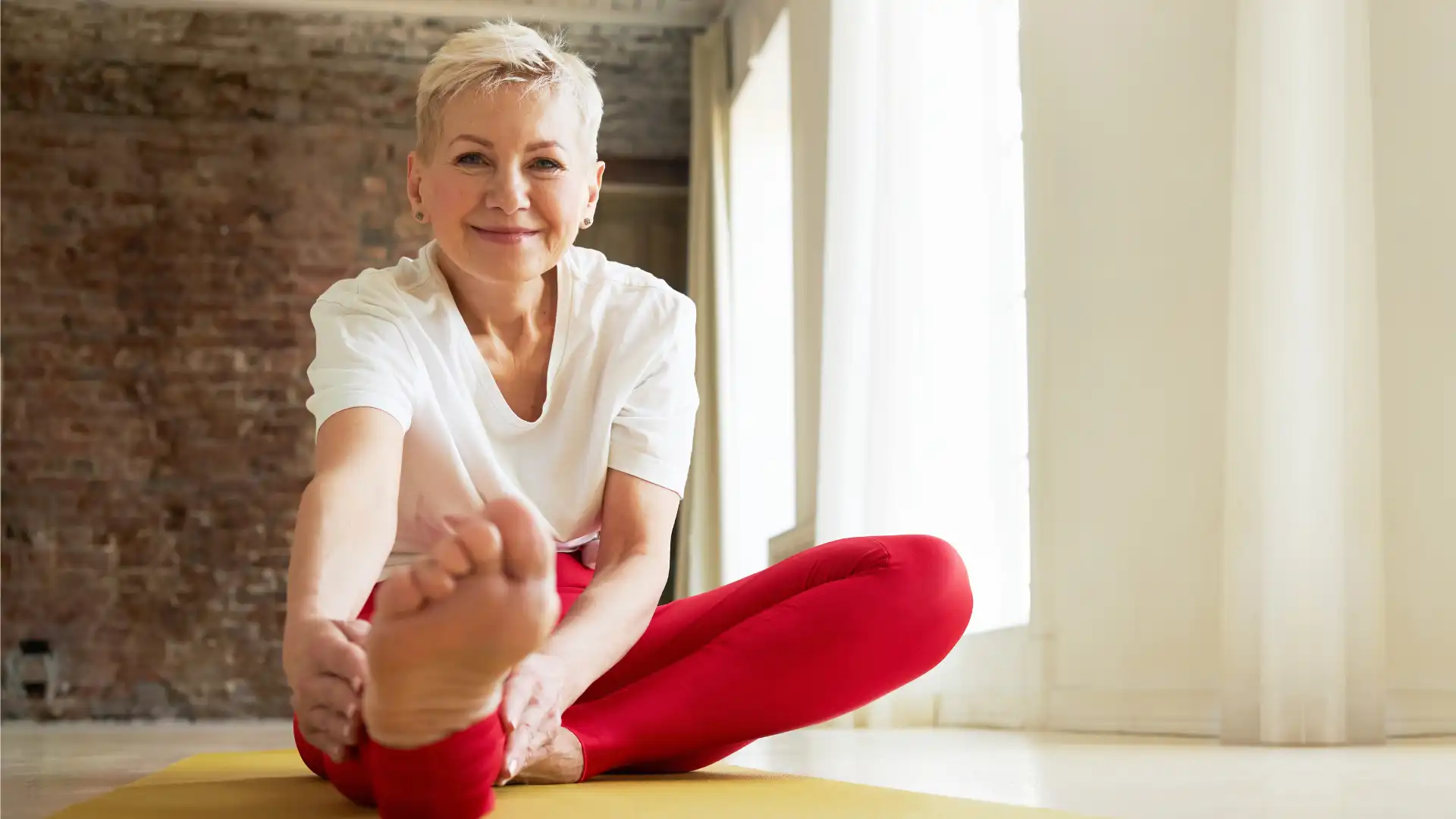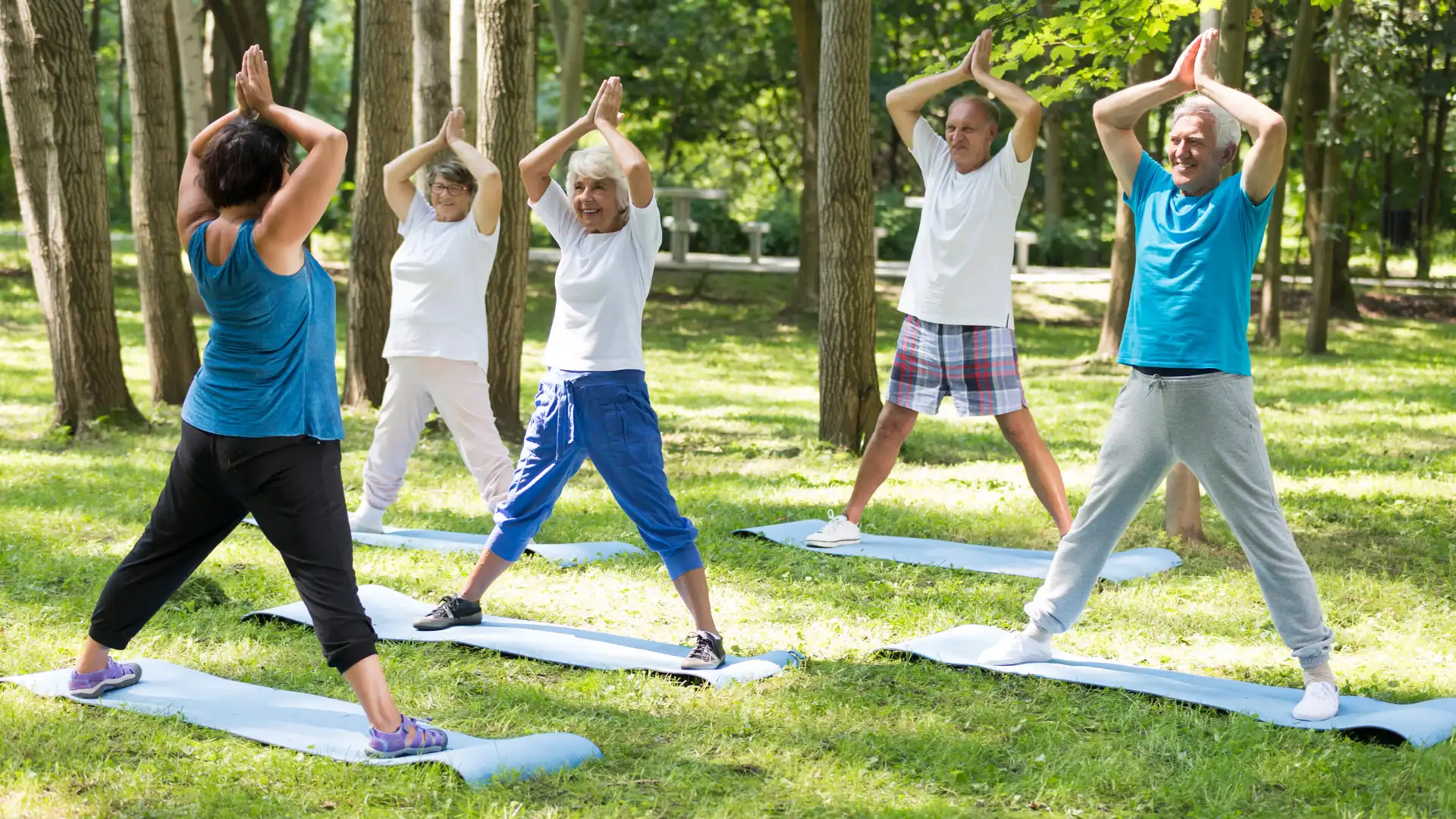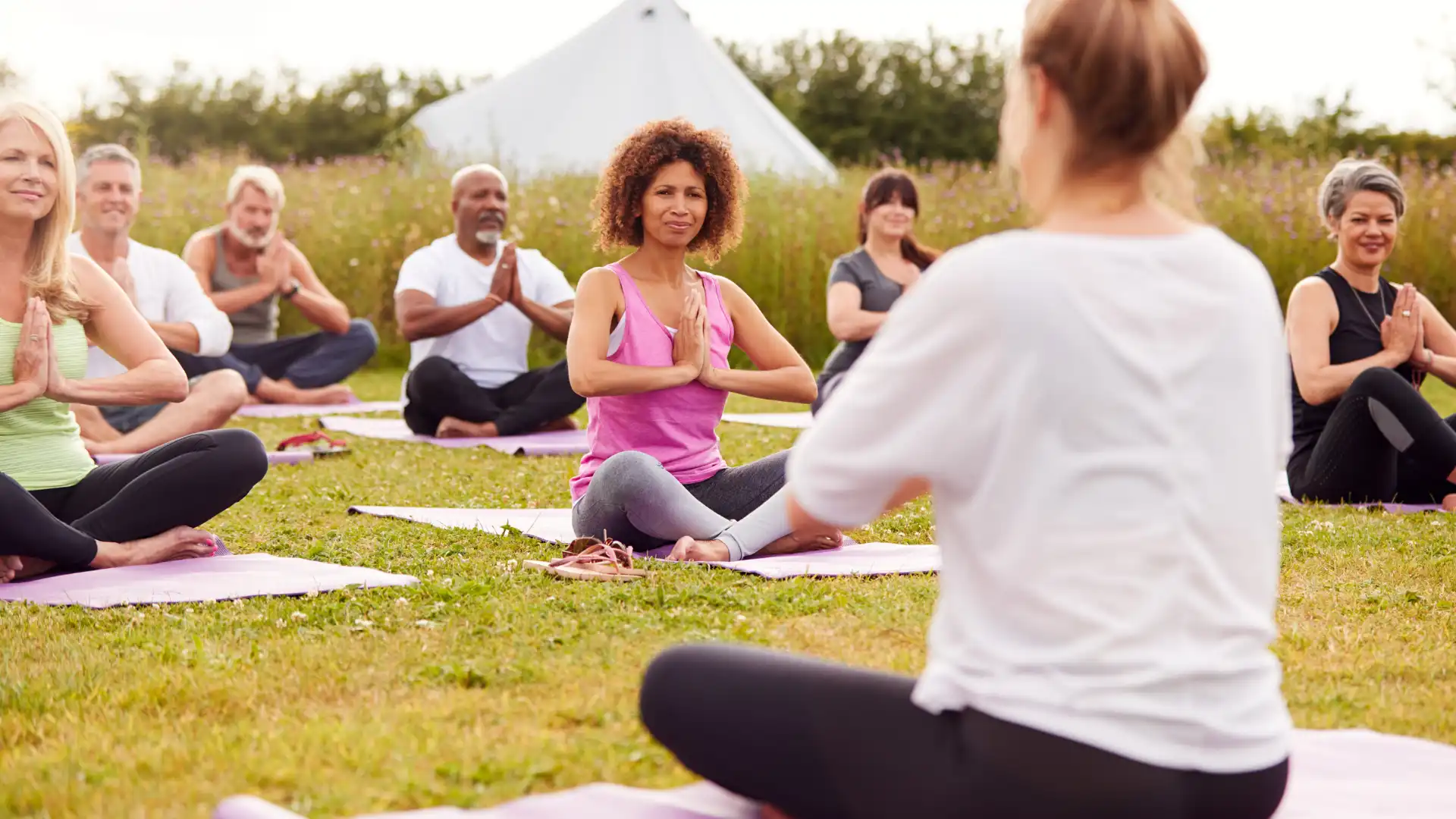From Sick Care to Preventive Care: How Yoga Fits into Healthcare

Recently, I’ve been out in Los Angeles, visiting family and friends, hiking, taking yoga classes, and doing a bit of research for my work. One of the things I love about Southern California (in addition to endless opportunities for eucalyptus aromatherapy), is that it’s such a hot spot for creativity and innovation in all fields.
An exciting opportunity I had was a chance to sit down and have a chat with a health promotion consultant who works with healthcare giant Kaiser Permanente. We discussed some of the current trends in healthcare and where and how yoga might fit in. She was super encouraging and positive.
“Yoga, mindfulness, and meditation are all at the top of the list of the direction in which things are moving,” she told me, “because the conversation is centered around finding ways to promote and reward personal accountability for health.”

When I questioned her about things like social determinants of health and the influence of social networks on health, she said, “Yes, it’s complicated, there are many factors. But still, the trend is moving in the direction of personal accountability.”
From Sick Care to Prevention
There have been lots of opportunities for bringing yoga into treatment areas like cancer care and addiction recovery. Still, an essential piece of the health crisis puzzle is shifting some of the focus away from treatment and toward health promotion and disease prevention. This seems super obvious, but it’s a massive societal juggernaut, and changing from a sick care model to a health care model takes time!
So the conversation around rewarding positive health behaviors such as exercising, quitting smoking, improving your diet, etc., is a timely and important one. Insurance companies, of course, are getting in on it as well. Maybe you’ve seen the commercials for getting better rates if you exercise and eat well.

Early this month, the National Institute of Health released the results of a survey that showed that many doctors are recommending Complementary Health Approaches (CHA). In fact, all of the physicians that responded to the survey said they recommend some form of Complementary Health Approaches, and 25 percent said that they recommend yoga! (1)
Doctors who have their own yoga practice are (unsurprisingly) the ones who are most likely to recommend yoga. They are also mostly female. The fact that physicians are recommending self-care practices like yoga is an example of how the trend toward personal accountability is showing up in clinical practice.
Educating the Professionals About Yoga’s Role in Healthcare
One of the most urgent areas of the healthcare crisis right now is the treatment of chronic pain. Because it’s so difficult to treat and because the standard of care has led to the opioid crisis, the medical community is desperate to find better ways to address the problem.
Earlier this year, the Department of Health and Human Services released the “Pain Management Best Practices Inter-Agency Task Force report: Updates, Gaps, Inconsistencies, and Recommendations,” which includes the recommendation to utilize complementary health approaches. One of the challenges cited in the report is that “There is a gap in the understanding of complementary and integrative health approaches.” (2)
This gap exists not just in the minds of the public, but also in the minds of health care professionals who tend to classify yoga as exercise—maybe with a sprinkle of relaxation on top—and really don’t know how to recommend it because it’s such a varied practice with an array of iterations—many of which are risky and inaccessible.

I think this can start to change if we, in the yoga world, begin to do a better job of educating healthcare professionals, describing what we do and letting them know that not all yoga is pretzel bendy, joint overloading and dangerous and that some of us are mind-body experts rather than (or in addition to) fitness professionals.
Yoga is such a natural fit for this trend toward personal accountability. Now we’re tasked with figuring out how we can better interface with the healthcare world to get the power of this practice to more people and help make real and lasting changes to the trajectory of health.
Also, read...
Book Review: Yoga for Times of Change
Practices and Meditations for Moving Through Stress, Anxiety, Grief & Life’s Transitions
Yoga Revolution: A Call for Social Justice On and Off the Mat (A Book Review)
Jan 06 – Lacey Gibson Ramirez MSc., RYT-500, ERYT-200, RPYT, CFSD
The Changing Yoga Profession
Oct 22 – Kristine Kaoverii Weber, MA, C-IAYT, eRYT500, YACEP
Related courses
Breath as Medicine: Yogic Breathing for Vital Aging
With Doug Keller
Yoga and Myofascial Release: Releasing Chronic Tension with the Bodymind Ballwork Method
With Ellen Saltonstall
Yoga and Detoxification: Tips for Stimulating Lymphatic Health
With Lisa Levitt Gainsley
Reprinted with permission from Subtle Yoga.

 Committed to the widespread adoption of yoga as a population health strategy, Kristine Kaoverii Weber, MA, C-IAYT, eRYT500, YACEP has been studying yoga and holistic healing for nearly 30 years advocating, speaking, and teaching about yoga since 1995, and training educators since 2003. Her organization, Subtle® Health, LLC, provides holistic, mind-body training, education, and clinical services with the mission of enhancing community health infrastructure. She is the director of the Subtle® Yoga Teacher Training for Behavioral Health Professionals program at MAHEC in Asheville, NC, presents workshops and trainings internationally, and is frequently invited to speak about yoga at health care conferences. After completing her BA and MA at Georgetown University, Kristine trained extensively in many styles of yoga, including Viniyoga, as well as in Asian bodywork therapy and homeopathy.
Committed to the widespread adoption of yoga as a population health strategy, Kristine Kaoverii Weber, MA, C-IAYT, eRYT500, YACEP has been studying yoga and holistic healing for nearly 30 years advocating, speaking, and teaching about yoga since 1995, and training educators since 2003. Her organization, Subtle® Health, LLC, provides holistic, mind-body training, education, and clinical services with the mission of enhancing community health infrastructure. She is the director of the Subtle® Yoga Teacher Training for Behavioral Health Professionals program at MAHEC in Asheville, NC, presents workshops and trainings internationally, and is frequently invited to speak about yoga at health care conferences. After completing her BA and MA at Georgetown University, Kristine trained extensively in many styles of yoga, including Viniyoga, as well as in Asian bodywork therapy and homeopathy.
She is the author of The Complete Self Massage Workbook and has published articles in the International Association of Yoga Therapist’s journal, Yoga Therapy in Practice, and other wellness publications. Her work has been featured in Redbook, BodySense, Women’s World, Natural Health, and Lifetime TV.
Resources:
- https://www.liebertpub.com/doi/10.1089/acm.2019.0303
- https://www.hhs.gov/sites/default/files/pmtf-final-report-2019-05-23.pdf
Recent articles
Yoga Anatomy: Release Your Tight Psoas Muscles with Clinical Somatics
Jul 16 – Sarah Warren
Dr. Ray Long: Stabilizing the Shoulders in Downward Dog and Upward Hands Poses
Jul 15 – By: Ray Long MD, FRCSC
Healthy Heart: How Yoga Can Help Prevent Heart Disease
Jul 13 – Jennifer Williams-Fields E-RYT 200
Categories
Upcoming courses
Breath as Medicine: Yogic Breathing for Vital Aging
With Doug Keller
Yoga and Myofascial Release: Releasing Chronic Tension with the Bodymind Ballwork Method
With Ellen Saltonstall
JOIN NOW!
Recent articles
Almost there...
Sorry, we couldn't find anything...
Anatomy
Yoga Anatomy: Release Your Tight Psoas Muscles with Clinical Somatics
The psoas muscle, formally called the psoas major, is a very important core muscle.…
Jul 16 – Sarah Warren
Anatomy
Dr. Ray Long: Stabilizing the Shoulders in Downward Dog and Upward Hands Poses
Today’s post will look at the scapular motion on the ribcage and the role…
Jul 15 – By: Ray Long MD, FRCSC
Yoga Practice Tips
Healthy Heart: How Yoga Can Help Prevent Heart Disease
Heart disease remains the leading cause of death in both men and women in…
Jul 13 – Jennifer Williams-Fields E-RYT 200



